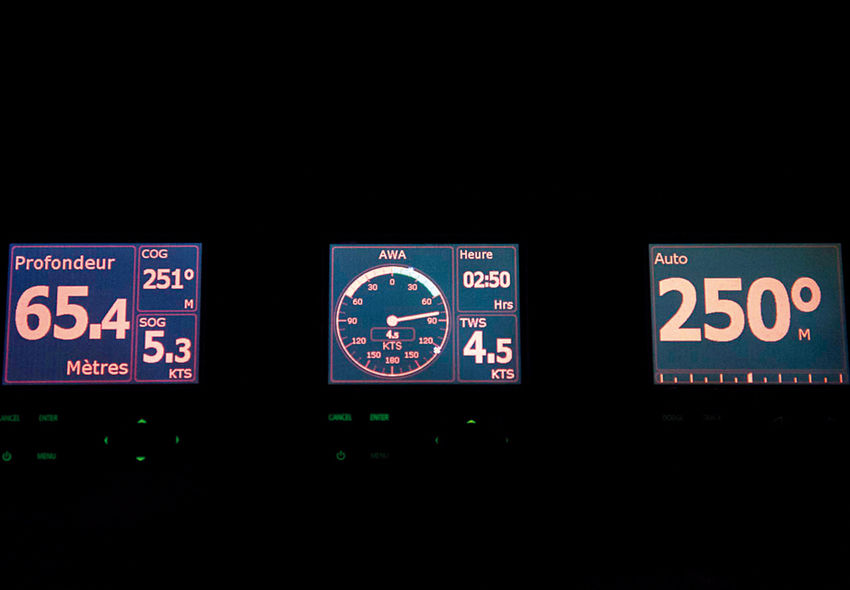
Issue #: 147
Published: May / June 2016
- Price per issue - digital : 5.40€Digital magazine
- Price per issue - print : 6.20€Print magazine
- Access to Multihulls World digital archives Digital archives
Night sailing? A long passage? The question, or sometimes even anxiety, seizes hold of the skipper... What watchkeeping system should be favored, how do you manage watches aboard?
We asked some well-known skippers, experienced sailors, novices, family crews and others who only sail with their buddies...and we found THE golden rule for organizing watches aboard. And this rule, from which no one can escape, is that there are no rules! On the other hand, there are numerous parameters to be taken into account and just as many good ideas amongst which you can pick and choose to turn these moments into unforgettable memories for the whole crew.
In the past, the hey-day of sailing ships, the day was divided into four periods of six hours, a quarter of the day. The French have retained the word (un quart) to denote a watch, whatever the duration finally opted for. Opinions diverge between two and four hours, and are sometimes quite firm. And what if, just like the singlehanded sailors who test their optimal period of sleep, you were to try to find your ideal watch duration? Too short, and those off-watch don’t get enough rest. Too long, and boredom starts to set in, despite the wonderful show offered by the sea, the waves, the plankton, the stars, the moon, the ships, the coast, the sails, the washing-up, the bread to be baked, or the latest season of your favorite series! But it is fatigue which you must be able to detect, as this is what reduces vigilance. Similarly, although a majority always prefer the same time slot and get into their rhythm, others like to switch the watch times, so that it’s not always the same people who have to get up in the middle of the night.

Light weather at night...the red glow from the instruments is enough.
Although sometimes limited to night time, many leisure sailors don’t hesitate to organize their whole life aboard to correspond with the rhythm of watchkeeping. The idea being to always have one person responsible for the boat, as well as its safety. How many collisions have happened in broad daylight, with each person depending on another, so that finally no one is actually keeping watch? Even though the rules can be more flexible during the day, always having a ‘watch leader’ who knows that the boat’s safety is his or her responsibility is an idea to be remembered. A practice adopted during crewed ocean races, as are the three statuses: on watch, stand-by and resting. The idea? Next to the active watch is a watch on stand-by, ready to intervene, give a hand with a maneuver, a reef, whilst the resting watch will really be able to sleep with peace of mind. Does that not require a large crew? No, not necessarily, because just like the duration, the composition of a watch can vary, and being on watch alone is less worrying when you at least know that there is a crew member on stand-by, who is resting and sheltered, always with shouting range, ready to rush on deck in a few seconds.
Because the key word, especially at night, is safety. And here everyone is in agreement about respecting these 10 golden rules:
- Evening briefing: communicate the developments in the weather ...
What readers think
Post a comment
No comments to show.